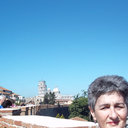Licoflavone C attenuates the genotoxicity of cancer drugs in human peripheral lymphocytes.
Paraules clau
Resum
Flavonoids exhibit a wide spectrum of biological activities that can lead to beneficial effects for human health. The search for cytotoxic, genotoxic and/or antimutagenic natural compounds is therefore of great relevance, especially in cancer chemotherapy. In view of this, we screened the potential genotoxicity/antigenotoxicty of licoflavone C (LFLC) - a naturally occurring prenyl-flavone extracted from Genista ephedroides - using the micronucleus (MN) assay on stimulated and cytochalasin B-blocked human lymphocytes. LFLC did not increase the spontaneous MN level up to 600 microM final concentration where a strong toxicity was seen to occur. We therefore performed an antigenotoxicity assay against the two mutagenic anticancer drugs, mitomycin C (MMC) and daunorubicin (DAU), using two non-toxic LFLC concentrations (0.1 microM and 1.0 microM). The MN frequencies induced by 0.025 microg/ml or 0.05 microg/ml DAU were significantly lowered by 45.4% or 46.6% and 41.8% or 44.8% at LFLC 0.1 and 1.0 microM, respectively. After treatment with 0.085 microg/ml or 0.17 microg/ml MMC, we detected a reduction in genotoxicity of 35.1% or 37.0% and of 38.0% or 35.8% at LFLC 0.1 and 1.0 microM, respectively. In conclusion, LFLC was proven to be protective toward the chromosome damage induced by DAU or MMC in cultured human peripheral lymphocytes.


